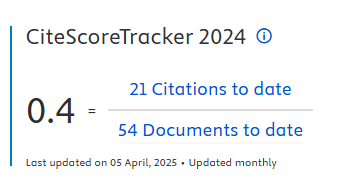Conception and assessment of a device for voluntary selective collecting: an urban ludic intervention
DOI:
https://doi.org/10.5585/iji.v10i2.21778Keywords:
Selective collection, Creative economy, Solid waste, Sustainability, Theory of fun.Abstract
Objective: This research presents the construction and evaluation of a recycling device designed based on the Theory of Fun to collect plastic waste.
Originality/relevance: This device consists of an instrumented "dump," which, after its use, communicates with the user, thanking the deposition of the waste and offering content in the form of audio about issues involving the theme of sustainability.
Methodology: To evaluate the prototype, generic brands were attached to it as the device's sponsors. A QR code system was also implemented in the prototype, which, after being accessed by the user, would lead the user to a website in which objectives of the project were reported. The prototype was set in public squares and places strategically chosen due to people's traffic. After installation, the artifact was monitored, and its efficiency was evaluated concerning the impact caused on the prospected local community. To verify users' preference, the device was installed in each studied location, next to a conventional wastebasket provided by the city.
Main results: Through the analyses, it was possible to verify the preference for using the prototype concerning conventional dumps. Users were also attentive to the brands disclosed, which indicates that the device under study
Theoretical/methodological contributions: This way, it can be figured out that the obtained data are adherent to the Theory of Fun postulates, and the studied bin can realize as an example of equipment designed for interaction with the users and, at the same time, disclosing to them information about sustainability
Social/management contributions: The prototype can also be used as an educational tool in elementary schools.
Downloads
References
Chapell, B. (2015). Sustainability + fun = a change in behavior. Environment, Ethics, and Cultures. Sense Publishers, p.271-284. https://doi.org/10.1007/978-94-6209-938-8_18
Deus, F.G.S, Afonso, B.P.D.,Afonso T. (2014). Environmental awareness, attitudes, and intention to use non-recyclable plastic bags. Revista de Gestão Ambiental e Sustentabilidade, v. 3, n. 1, p. 71-87, 2014. https://doi.org/10.5585/geas.v3i1.112
Donoff, G, Bridgman, R. (2017). The playful city: constructing a typology for urban design interventions. International Journal of Play, v.6, n.3, p.294-307. DOI: 10.1080/21594937.2017.1382995.
Donoff, G. (2014). Plan for a playful city: A typology of ludic ways to increase pedestrian activity (Master’s thesis). Department of City Planning, University of Manitoba. Retrieved from http://mspace.lib.umanitoba.ca/handle/1993/23953. Accessed in February 2021
Elkinton, J. (1997). Cannibal with forks: the triple bottom line of 21st-century business. Oxford: Capstone.
Florida, R. (2017). The new urban crisis. How our cities are increasing inequality, deepening segregation, and failing the middle class and what we can do about it. Nova York, Basic Books, 2017.
Gouvea, R., Kapelianis, D., Montoya, M.J.R., Vora, G. (2020). The Creative Economy, innovation, and entrepreneurship: an empirical examination. Creative Industries Journal. https://doi.org/10.1080/17510694.2020.1744215
Janson, M. (2016). The Gamification of Recycling Behaviour. (Master's Thesis) The University of Waikato, Hamilton, New Zealand. Retrieved from https://hdl.handle.net/10289/10875
Kemeny, T., Nathan, M., O´Brien, D. (2019). Creative differences? Measuring Creative Economy employment in the United States and the UK. Regional Studies. https://doi.org/10.1080/00343404.2019.1625484
Montazeri, S., Finkbiner, P., Papalambros, P., Gonzalez, R. (2013). Save a napkin, save a tree: The role of metaphors in product design to change behavior. International Conference on Engineering Design, ICED 13. Korea. 10p.
Nijholt, A. (2017). Playable cities: A short survey. 6th International Conference on Informatics, Electronics, and Vision and 2017 7th International Symposium in Computational Medical and Health Technology, ICIEV-ISCMHT 2017. 6p.
Paschoalin Filho, J.A., and Graudenz, G.S. (2012). Irregular disposal of construction and demolition waste (CDW) and its impacts on public health. Revista de Gestão Social em Ambiental, v.6, n.1, p.127-142. https://doi.org/10.24857/rgsa.v6i1.421
Paschoalin Filho, J.A.; Ghermandi, A.; Guerner Dias, A.J.; Luz, E.G.; Cortese, T.T.P (2020) Stakeholder views of source separation collection programme in East São Paulo, Brazil. Waste Management & Research, v.39, n.01, p.1-8. https://doi.org/10.1177/0734242X20972774
Ratinaud, P. (2014). Iramuteq: Interface de R pour les Analyses Multidimensionnelles de Textes et de Questionnaires - 0.7 alpha 2. Recuperado de http://www.iramuteq.org
Streimikiene, D., Kacerauskas, T. (2020). The Creative Economy and sustainable development: The Baltic States. Sustainable Development, p.1-10. https://doi.org/10.1002/sd.2111
Sun, H., Pofoura, A.K., Mensah, I.A., Li, L., Mohsin, M. (2020). The role of environmental entrepreneurship for development: Evidence from 35 countries in sub-Saharan Africa. Science of the Total Environment. https://doi.org/10.1016/j.scitotenv.2020.140132
Downloads
Published
How to Cite
Issue
Section
License
Copyright (c) 2022 João Alexandre Paschoalin Filho, Giberto Tarciso Bottan, Gustavo Mesch, António José Guerner Dias, Fredy López-Pérez, Wilson Levy Braga da Silva Neto

This work is licensed under a Creative Commons Attribution-NonCommercial-ShareAlike 4.0 International License.
- Abstract 574
- PDF 477













